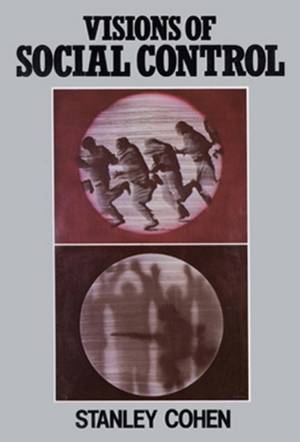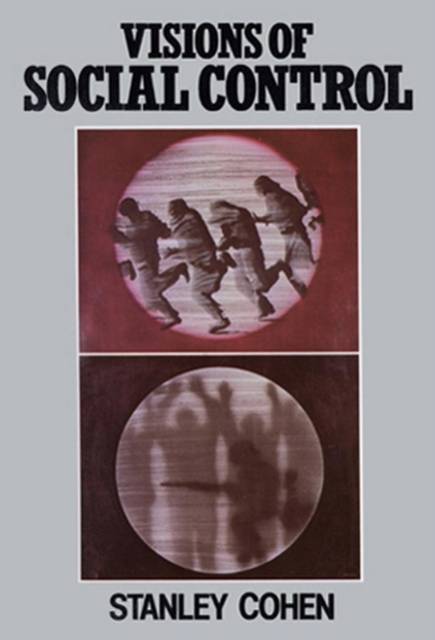
Je cadeautjes zeker op tijd in huis hebben voor de feestdagen? Kom langs in onze winkels en vind het perfecte geschenk!
- Afhalen na 1 uur in een winkel met voorraad
- Gratis thuislevering in België vanaf € 30
- Ruim aanbod met 7 miljoen producten
Je cadeautjes zeker op tijd in huis hebben voor de feestdagen? Kom langs in onze winkels en vind het perfecte geschenk!
- Afhalen na 1 uur in een winkel met voorraad
- Gratis thuislevering in België vanaf € 30
- Ruim aanbod met 7 miljoen producten
Zoeken
€ 52,45
+ 104 punten
Omschrijving
Visions of Social Control is a wide ranging analysis of recent shifts in ideas and practices for dealing with crime and delinquency.
In Great Britain, North America and Western Europe, the 1960's saw new theories and styles of social control which seemed to undermine the whole basis of the established system. Such slogans as 'decarceration' and 'division' radically changed the dominance of the prison, the power of professionals and the crime-control system itself.
Stanley Cohen traces the historical roots of these apparent changes and reforms, demonstrates in detail their often paradoxical results and speculates on the whole future of social control in Western societies. He has produced an entirely original synthesis of the original literature as well as an introductory guide to the major theoreticians of social control, such as David Rothman and Michael Foucault. This is not just a book for the specialist in criminology, social problems and the sociology of deviance but raises a whole range of issues of much wider interest to the social sciences. A concluding chapter on the practical and policy implications of the analysis is of special relevance to social workers and other practitioners.
This is an indispensable book for anyone who wants to make sense of the bewildering recent shifts in ideology and policy towards crime - and to understand the broader sociological implications of the study of social control.
In Great Britain, North America and Western Europe, the 1960's saw new theories and styles of social control which seemed to undermine the whole basis of the established system. Such slogans as 'decarceration' and 'division' radically changed the dominance of the prison, the power of professionals and the crime-control system itself.
Stanley Cohen traces the historical roots of these apparent changes and reforms, demonstrates in detail their often paradoxical results and speculates on the whole future of social control in Western societies. He has produced an entirely original synthesis of the original literature as well as an introductory guide to the major theoreticians of social control, such as David Rothman and Michael Foucault. This is not just a book for the specialist in criminology, social problems and the sociology of deviance but raises a whole range of issues of much wider interest to the social sciences. A concluding chapter on the practical and policy implications of the analysis is of special relevance to social workers and other practitioners.
This is an indispensable book for anyone who wants to make sense of the bewildering recent shifts in ideology and policy towards crime - and to understand the broader sociological implications of the study of social control.
Specificaties
Betrokkenen
- Auteur(s):
- Uitgeverij:
Inhoud
- Aantal bladzijden:
- 336
- Taal:
- Engels
Eigenschappen
- Productcode (EAN):
- 9780745600215
- Verschijningsdatum:
- 8/01/1991
- Uitvoering:
- Paperback
- Formaat:
- Trade paperback (VS)
- Afmetingen:
- 152 mm x 229 mm
- Gewicht:
- 453 g

Alleen bij Standaard Boekhandel
+ 104 punten op je klantenkaart van Standaard Boekhandel
Beoordelingen
We publiceren alleen reviews die voldoen aan de voorwaarden voor reviews. Bekijk onze voorwaarden voor reviews.









